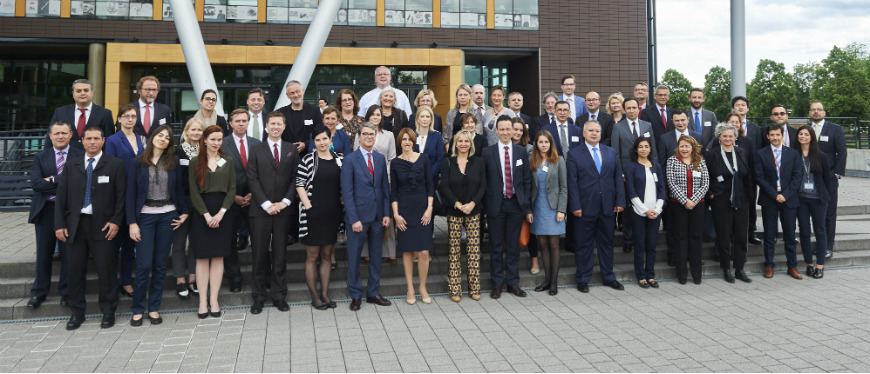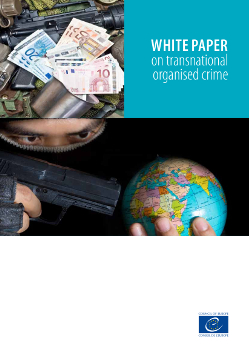Committee on offences relating to cultural property (PC-IBC)
 |
International Seminar on the Fight against Offences relating to Cultural PropertyExchange of good practices and shared priorities |
|
20-21 June 2024, Zaragoza (Spain) |

Recent events in Iraq and Syria have emphasised the vulnerability of historic and archaeological sites, with a deliberate destruction of humanity’s heritage threatening our democratic values, identity and memory. Trafficking in cultural property is a highly clandestine crime and a source for money laundering practices affecting all European countries.
The Terms of reference of the Committee on Offences relating to Cultural Property (PC-IBC) were adopted by the Committee of Ministers on 2 March 2016. Under the authority of the European Committee on Crime Problems (CDPC), in close co-operation with the Steering Committee for Culture, Heritage and Landscape (CDCPP), the Committee prepared a draft Convention superseding and replacing the European Convention on Offences relating to Cultural Property (ETS No.119, known as the “Delphi Convention”), as well as its draft Explanatory Report.
The PC-IBC met over a period of 6 months during 2016-2017 to draft the new convention. This pioneering Convention was adopted by the Committee of Ministers of the Council of Europe on 3 May 2017 and opened for signature in Nicosia (Cyprus) on 19 May 2017.

Following its Terms of Reference, the PC-IBC shall ensure that the draft Convention deals, inter alia, with the following issues:
- definition of cultural property
- criminalisation of behaviour which has the potential to harm cultural property
- criminalisation of illicit destruction of cultural property
- criminalisation of trafficking in cultural property
- prevention of offences relating to cultural property
- international co-operation
Cyprus ratifies the European Convention on Offences relating to Cultural Property
Working documents
- DRAFT: Council of Europe Convention on Offences relating to Cultural Property
- DRAFT: Explanatory Report of the Council of Europe Convention on Offences relating to Cultural Property
- Terms of Reference
- PC-IBC (2016) 01 Fin
- PC-IBC (2016) 02
- Abridged extract - Review of the Council of Europe Conventions within the direct responsibility of the CDPC
- Model provisions for Council of Europe Criminal Law conventions
Background documents
- European Convention on Offences relating to Cultural Property
- Convention on the Means of Prohibiting and Preventing the Illicit Import, Export and Transfer of Ownership of Cultural Property 1970
- Unidroit Convention on Stolen or Illegally Exported Cultural Objects (Rome, 24 June 1995)
- Council Regulation (EC) No 116/2009 of 18 December 2008 on the export of cultural goods
- Directive 2014/60/EU of the European Parliament and of the Council of 15 May 2014 on the return of cultural objects unlawfully removed from the territory of a Member State and amending Regulation (EU) No 1024/2012 (Recast)
- UNODC International Guidelines for Crime Prevention and Criminal Justice
- Resolution 2199 (2015) Adopted by the Security Council at its 7379th meeting, on 12 February 2015 on Threats to international peace and security caused by terrorist acts
- Resolution 2249 (2015) Adopted by the Security Council at its 7565th meeting, on 20 November 2015 on Threats to international peace and security caused by terrorist acts
- Namur Call
Meetings 2017
4th Plenary Meeting
Strasbourg, 20-24 February 2017
3rd Plenary Meeting
Strasbourg, 9 - 12 January 2017
Meetings 2016
2nd Plenary Meeting
Strasbourg, 7-10 November 2016
1st Plenary Meeting
Strasbourg, 31 May - 1 June 2016
Colloquium
Strasbourg 13 January 2017
Resources
- Steering Committee for Culture, Heritage and Landscape (CDCPP)
- The United Nations Educational, Scientific and Cultural Organization (UNESCO)
- The United Nations Office for Drugs and Crime (UNODC)
- The Organisation for Security and Co-operation in Europe (OSCE)
- The International Criminal Police Organisation (INTERPOL)
- The International Institute for the Unification of Private Law (UNIDROIT)
Key information and documentation
The Nicosia Convention in 10 questions and answers
Studies in criminological research





